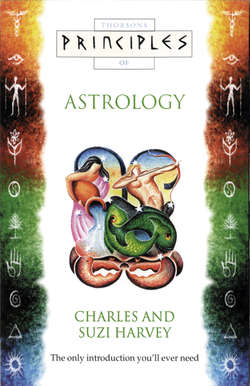Читать книгу Astrology: The only introduction you’ll ever need - Charles Harvey - Страница 16
EMERGING FROM ISOLATION
ОглавлениеAstrology during the 20th century has been gradually emerging from 200 years of isolation. It is still not accepted by most academics, and encyclopaedias still omit it from the map of 20th century knowledge, or include it with scornful asides. Faced with the upsurge of interest in astrology, sociologists try to explain it as a superstitious reaction to the nihilism of the 20th century. Meanwhile, astrologers have simply got on with their work and have developed the study in exciting and philosophically challenging new areas. During the century, there has been a growing number of intellectuals who have slipped through the ring fence of academic scorn and now experiment with astrology.
The great Irish poet, dramatist and philosopher W.B. Yeats (1865–1939) studied and used astrology daily throughout much of his adult life. C.G. Jung (1875–1961), the great Swiss psychologist, was a pioneer in this area and wrote to Sigmund Freud:
My evenings are taken up very largely with astrology. I make horoscopic calculations in order to find a clue to the core of psychological truth.
Likewise, in Austria, Oscar Adler, the medical doctor and musician brother of the great psychologist Alfred Adler, was a pioneer of modern astrology, and wrote a four-volume work, An Astrologer’s Testament. Also in Austria, the philosopher and painter Thomas Ring (1892–1983) wrote and lectured widely on astrology throughout his life. In Germany between the wars, the traveller and philosopher Count Herman Keyserling (1880–1946) embraced astrology and wrote an important introduction to the subject, whilst his son, Arnold Keyserling (1922– ), Professor of Philosophy at the University of Vienna, and a humanistic psychologist, lectures and teaches regularly throughout Europe on astrology.
The late Dr James S. Williamsen (1941–88), a brilliant American mathematician resident at King’s College Cambridge and the Oxford Computing Laboratory, summed up the nub of the matter. When asked why, as a penetrating student of artificial intelligence, he would stoop to study astrology, Williamsen replied:
If we truly want to create artificial intelligence then we must first understand the operations of the Mind which created our minds. From my studies it seems clear that astrology holds a key to understanding and mapping the workings of what from earliest times was known as the Divine Intelligence.
Such views on the implications of astrology are not only to be heard from questing scientists. Professor Dr L. Cunibert Mohlburg of the Vatican Institute of Archaeology forecast in his book Candi’s Letter to Tschu that:
If we look ahead it is already possible to say that Astrology seems destined to lead all other branches of knowledge out of the blind alley of unspiritual rationalism and materialism … and effect the reconciliation that Science so ardently desires with Belief.
At the present time, a leading contemporary philosopher Dr Richard Tarnas, author of the much-acclaimed history of Western thought, Passion of the Western Mind, has said he believes that:
Psychology textbooks of the future will look upon modern psychologists working without the aid of astrology as being like medieval astronomers working without the aid of a telescope.
